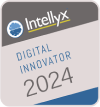Banks and financial services are experiencing a real need for solutions that provide performance-at-scale. New regulations like FRTB (also called Basel IV FRTB) have greatly expanded the reporting requirements for the financial industry.
This increase in requirements, coupled with the complexity of the new rules and regulations means that the law now requires much finer granularity and disciplined reporting. In order to comply, banks’ analytics systems must be modernized, to ensure that the data sent to regulatory authorities is correct and relevant.
In an effort to find solutions to these new requirements, Citihub Consulting (a global financial market IT advisory firm) has penned a comparative analysis of GPU accelerated database solutions, to determine the maturity and performance potential of these solutions.
Dealing with big data challenges in risk and reporting
Citihub has found that in many firms, this type of unified risk reporting is currently constrained, as datasets are distributed across collections of asset-class aligned systems that typically refresh only once per day. This distribution reduces the datasets’ interactivity, making it difficult to process changes in near real-time, and limiting responsiveness.
The challenge is not just in the response time for these queries and reports, but also in the lack of access to the huge quantities of data being collected. Many banks and financial services perform time-consuming re-aggregations and cube-generation in an attempt to make the data accessible in a timely fashion, but this also severely limits the data’s fidelity and granularity. Users in these cases are able to wait minutes (or longer) for responses to these types of large-scale queries, according to Citihub.
How do GPU databases measure up for Big Data?
Citihub worked closely with a tier 1 investment bank to generate a financial services industry risk result dataset suited specifically to FRTB reporting and analysis. They set about putting GPU databases to the test in an intent to reveal query performance, scalability, and overall product enterprise readiness.
It was no surprise that BigQuery out-performed SQream for the single desk query – we knew up front that SQream is targeted at primarily larger datasets. However, we were surprised at how quickly the SQream performance overtook BigQuery as the volume scaled up.
In all but one query, SQream DB outperformed Google BigQuery. In fact, Citihub discovered that SQream DB scales sub-linearly as data sizes grow. This is part of SQream DB’s design, and it is what makes SQream DB extremely suitable for large and growing data. In fact, SQream DB performed just 4.3x slower when data grew by a factor of six, due in part to its excellent query compiler and optimizer. The report discovered that, “SQream does not suffer from the query optimisation issues that we have seen elsewhere”.
Some databases may scale exponentially as data grows. Some scale linearly. SQream DB scales even better.
Citihub’s conclusion: SQream DB is a candidate worth considering
Citihub found that SQream DB retains the flexibility of a fully-featured SQL environment, while providing excellent performance on huge datasets.
“The in-memory solutions will not scale to support multi-year, multi-petabyte requirements just yet. However, the SQream offering in this space is worth considering, since it does not appear (from the testing performed) to be bound by limitations on the joins etc., so retains all the query flexibility of a fully featured SQL environment. Combine the query performance of SQream on large datasets, and the vast scale that it can support on limited hardware, and SQream is certainly a candidate worth considering.”
We are proud that a third-party consultant with such vast domain expertise has found SQream DB to be a viable and performant alternative to existing big data solutions. We invite you to try SQream DB for yourself and experience the benefits of a modern, fast, GPU-powered SQL database.
Watch the free on-demand webinar
Watch our free financial services webinar
Read the full Citihub Report
To read the full findings, visit Citihub and download the full free report:
GPU-Accelerated Databases: Addressing FRTB Risk Results Reporting And Other Performance-At-Scale Challenges in Financial Services













